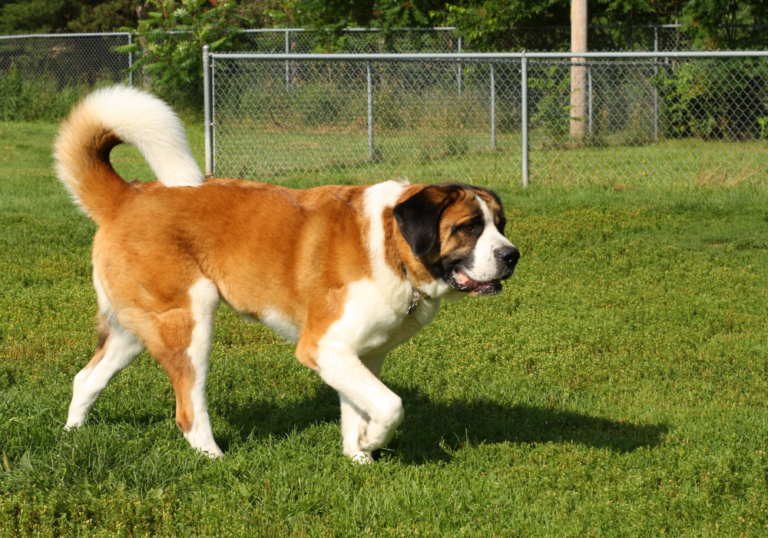Health Problems Common in Large Dogs

When it comes to our furry companions, size can play a significant role in determining their health risks. Large dog breeds, such as Saint Bernards, Great Danes, and Irish Setters, are particularly susceptible to certain health issues. Being aware of these conditions and their symptoms can help you ensure your big dog leads a healthy and happy life.
Here’s a look at some common health problems found in large dog breeds and what you should watch for.
Entropion
Entropion is a condition where a dog’s eyelids turn inward, which is particularly prevalent in large breeds. This issue typically becomes noticeable by the time your dog turns one year old. While it may seem like a minor cosmetic concern, entropion can lead to serious complications.
Irritation caused by the small hairs on the eyelid can harm the cornea—the clear layer of tissue covering the iris and pupil. This irritation can result in painful ulcers and dark scar tissue that may impair your dog’s vision. Signs of entropion include red eyes or discharge around the eyes.
While antibiotic eye drops can aid healing, artificial tears can help keep the eyes moist. In severe cases, surgery may be required to correct the eyelid position.
Dysplasia
Hip and elbow dysplasia are common ailments in larger dogs. This condition occurs when the bones in a joint do not fit together properly, leading to painful movement. Dogs with dysplasia may exhibit various symptoms, including:
- Limping or stiffness
- Reluctance to climb stairs
- Changes in gait
- Decreased range of motion
Maintaining your dog’s ideal weight is crucial, as excess weight can exacerbate joint stress. Glucosamine supplements may also provide relief from joint pain. In severe cases, surgical intervention may be necessary to enhance your dog’s mobility and reduce discomfort.
Bloat
Bloat, or Gastric Dilatation-Volvulus (GDV), is a life-threatening condition that occurs when a dog’s stomach fills with air and twists. This impairs blood flow to vital organs and can escalate quickly, especially in large breeds like Great Danes and St. Bernards.
Signs of bloat include:
- A painful, swollen abdomen
- Attempts to vomit without success
- Panting and drooling
- Restlessness or signs of distress
Immediate veterinary attention is critical, as untreated bloat can be fatal within hours. If you observe any of these symptoms, seek emergency care right away.
Arthritis
Arthritis is another common issue faced by large dog breeds, resulting in the degeneration of joint cartilage. Symptoms may include:
- Lameness or limping
- Stiff joints
- Irritability
- Difficulty with stairs or jumping
Because arthritis can lead to decreased activity levels, weight gain can worsen joint stress and pain. Treatment options may include anti-inflammatory medications, steroids, and glucosamine supplements. If these methods prove ineffective, surgical options might be considered.
Dilated Cardiomyopathy
Dilated cardiomyopathy (DCM) is a serious condition that affects the heart’s ability to pump blood effectively. While it can affect any dog, it’s notably more common in larger breeds.
In its early stages, DCM may not present any symptoms. However, as the condition advances, you might notice:
- Increased fatigue
- Swollen abdomen
- Difficulty breathing
- Coughing or weakness
Although medication can help manage the condition, DCM is often progressive and can lead to severe complications.
Conclusion
Owning a large dog comes with unique responsibilities, especially regarding health concerns. Regular vet visits and monitoring for any signs of distress are essential in promoting your pet’s well-being. If you suspect your large dog is exhibiting symptoms of any of the conditions mentioned above, consult our doctors at Acacia Pet Hospital for guidance and treatment options.
If you need more help or have any questions, call us at Acacia Pet Hospital, acaciapetclinic.com, (408) 264-6354, 4486 Pearl Ave, San Jose, CA 95136.
Hours: Monday-Friday: 8:00 am – 5:00 pm or visit us online.

